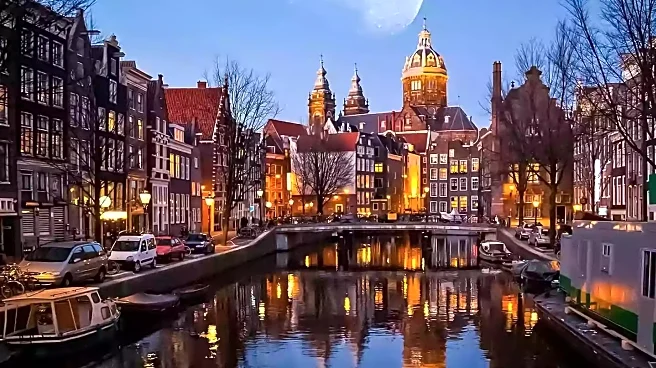What's Happening?
Residents of Amsterdam have initiated legal proceedings against the City Council, accusing it of failing to enforce a limit on overnight tourist stays. The lawsuit follows a breach of the agreed-upon threshold of 20 million annual tourist overnight stays, with projections suggesting further increases. The 'Amsterdam has a choice' initiative, supported by local contributions and neighborhood associations, contends that excessive tourism is turning the city into a 'theme park' and undermining its distinctive spirit. The City Council has implemented measures such as high tourist taxes and restrictions on new hotel construction, but residents argue these efforts are insufficient.
Why It's Important?
The lawsuit highlights the challenges faced by cities in balancing tourism and local quality of life. Excessive tourism can lead to economic disparities, environmental strain, and loss of cultural identity, affecting residents' daily lives and the city's unique character. The situation underscores the need for sustainable tourism policies that prioritize community interests and environmental conservation. The legal action may set a precedent for other cities grappling with similar issues, prompting discussions about the role of tourism in urban development and the importance of community engagement in policy decisions.
What's Next?
The lawsuit aims to hold the City Council accountable for enforcing the existing limit on tourist overnight stays. A hearing scheduled for next year will determine if the initiative has enough local support to move forward. The situation may prompt further measures to address excessive tourism, such as increased tourist taxes and restrictions on certain activities. The legal action may also lead to broader discussions about sustainable tourism practices and the importance of preserving cultural identity in urban development.
Beyond the Headlines
The lawsuit raises broader questions about the impact of tourism on urban environments and the responsibilities of local governments in managing tourism growth. It highlights the potential for tourism to contribute to economic disparities and environmental strain, prompting discussions about sustainable development and community engagement. The situation may lead to a reevaluation of the role of tourism in urban planning and the importance of preserving cultural identity in the face of global tourism trends.









